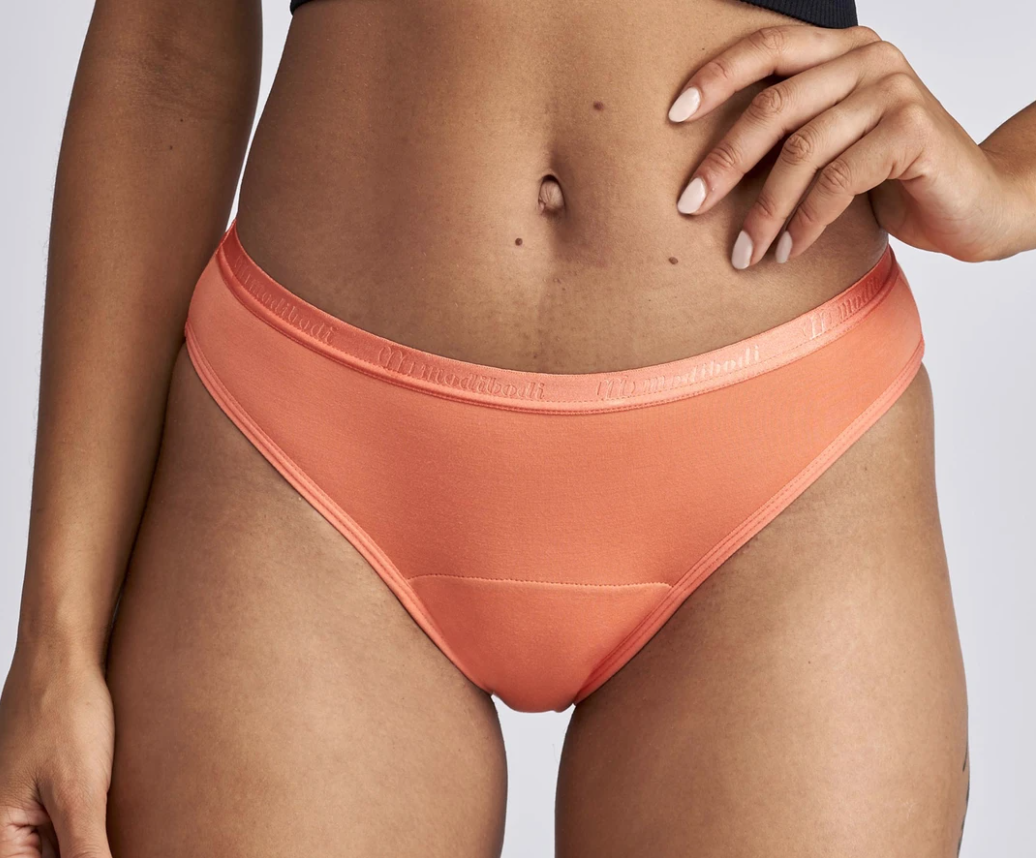Ending Period Poverty: Where we go after abolishing the Tampon Tax?
Image: Natracare
The absence of a post-New Year’s Eve party hangover might have left you feeling brighter at the start of 2021. But what might also have had you feeling more optimistic on January 1st was the change in legislation which finally scrapped the VAT on sanitary items, something which campaigners have been fervently fighting for.
The Tampon Tax, as it’s widely referred to, meant that until this year sanitary items were classed as a non-essential, luxury product and subject to VAT. The Labour Party cut the rate from 17.5% to 5% in 2001 but were prevented from removing it completely due to EU tax regulations; as a result, it remained at this level for just shy of two decades. Whilst EU law was cited as the reason –MPs in The Commons voted against negotiating this with European parliament in 2015 and the tax remained unchallenged and firmly in place, a sexist hangover from when it was first instated in the 1970s.
The Period Poverty and #FreePeriods campaign at large, is arguably one of the most eminent grassroots movements of the past few years, with attention mounting from 2017, driven by committed third-sector organisations and community organisers such as Amika George. Not specific to the eradication of the Tampon Tax, Period Poverty campaigners highlighted issues women were facing globally in terms of affording items each month, as well as mobilising the fight for free access to sanitary products for all young people. The issue came into public view with distressing stories of British students who were unable to afford sanitary products being forced to use clothing or old rags or even having to use the same tampon for days on end, risking Toxic Shock Syndrome. Period Poverty was brought to the forefront as not only a common and detrimental barrier to basic hygiene and health, but as the cause of many young people missing school – therefore making it a barrier to equal access to education.
Campaigners achieved successes in 2019 with the UK Government putting into place a scheme to provide free sanitary products for anyone under the age of 19 requiring access in order to continue learning. A positive step, yet this still fails to support the thousands of women across the UK experiencing financial hardship, poverty and destitution. A truly progressive step (or rather a bound) would be to follow Scotland’s trailblazing lead, providing free products for all.
Following the abolishment of Tampon Tax in 2021, it’s estimated that a regular pack of tampons will be on average 7p cheaper. It is undoubtedly an important breakthrough, but for women nationally making tough decisions on a daily basis and struggling financially, period poverty will still persist – causing issues month in, month out. A large success of the campaign, aside from small but vital savings on an essential, is indisputably the principle. Menstruating is not a luxury and sanitary items should never be taxed as one. Period.
I won’t recite the countless less vital items you’ll be surprised to hear have never been subject to the same tax levels *cough men’s razors*, but I think the stand-alone fact that sanitary hygiene is a basic human right speaks for itself; it could not be more essential.
Whilst we can celebrate the progress, it is important the issue does not slide completely from public attention. The change in legislation covers most sanitary products (largely pads and tampons) yet omits some reusable choices such as period pants. Period pants are a brilliant, sustainable option for your time of the month, which can be washed simply by putting them in the machine and can last for up to five years.
Image: Period Pants, Modibodi
It is predicted that we use 11,000 disposable sanitary products in our lifetime which end up buried in our earth in landfill. Switching to reusable period pants helps to reduce the strain on the earth’s natural resources and works towards achieving the UN Sustainable Development Goals. The SDGs are a set of global, interdependent goals, constructed in 2015 as a ‘blueprint to achieve a better and more sustainable future for all’ according to the UN. The 17 targets span
core economic, social, environmental and health issues and call for countries, organisations and individuals to work together to achieve a more equal and sustainable world for everyone. Central to numerous of these aims, namely Goal 12 (Responsible consumption and production) and Goal 15 (Life on Land) is the responsible use of the earth resources, protecting our forests, shifting towards reusable items and limiting our impacts on the climate crisis. Reducing our use of single-use items such as disposable sanitary products where possible, can collectively make a great impact in inching towards the global goals.
If you’re interested in making the switch there are loads of great brands out there, including Australian brand Modibodi, who offer a perfect pair for heavier days, complete with a stylish lace trim, whilst popular brand Thinx, boast a wide-range of options for all absorbencies and styles.
As it stands, the costs associated with period pants mean they’re not in budget for everyone, so knocking off the additional tax and edging towards more affordability is vital. If looked after, a pair can last for several years and become better value for money in the long run than disposable sanitary items, yet this is irrelevant if you can’t afford this at the point of purchase.
Hopefully as the years go on, period pants will become more inexpensive as they gain popularity, but in the short-term, including these items in the revised tax-free category is vital – not only for women buying the products, but for the planet. Dropping the tax on periods pants would be one more step in the direction of achieving more equal, sustainable and affordable periods for all.
Words by Ellie Weston






















Handmade in Ghana, our aprons offer a unique design with a front pocket perfect for kitchen utensils or your phone and tie neck straps each made from recycled material. The perfect gift for any cooking enthusiasts!
Our aprons have been named after markets in Ghana and London. This apron has been named after street food hub Maltby Street Market.